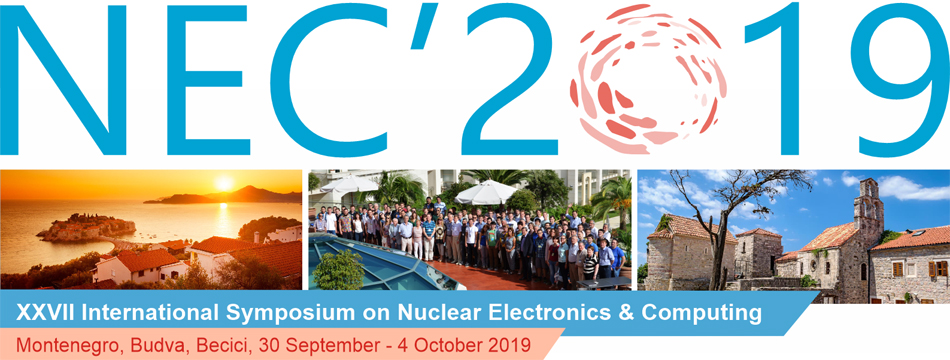Speaker
Mr
Victor Barashko
(University of Florida)
Description
CMS Cathode Strip Chambers (CSC) are used for muon identification, measurements, and trigger in the forward direction. The system comprises 540 six-layer detectors with the overall sensitive area of about 6000 m^2 and has more than 500K electronics readout channels. Automated CSC Data Quality Monitoring system (CSC DQM) is an integral part of CSC commissioning and operation, as well as of the central CMS monitoring system. The system monitors CSC data format integrity, hardware-set diagnostic bits, and a large number of occupancy distributions (>100K histograms). It is designed to detect problems ranging from dead/intermittent or noisy channels/boards, readout timing discrepancies to inconsistencies in higher level reconstructed physics objects, and to propagate automatically corresponding alarms, with a properly assigned level of severity and a possible troubleshooting diagnostic, to the top level. Given a significant number of monitor-able objects, the system implementation specifically focuses on reducing complexity of monitoring and problems detection procedures for an end-user. The DQM system functions in various modes: local CSC system running, global CMS running, and offline (i.e. using already recorded data). In this contribution an overview of implementation, general performance, and operational experience are provided.
Primary author
Victor Barashko
(University of Florida)

